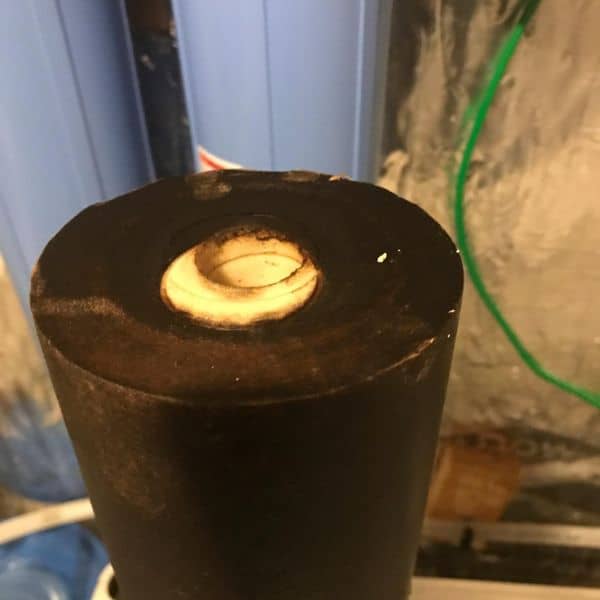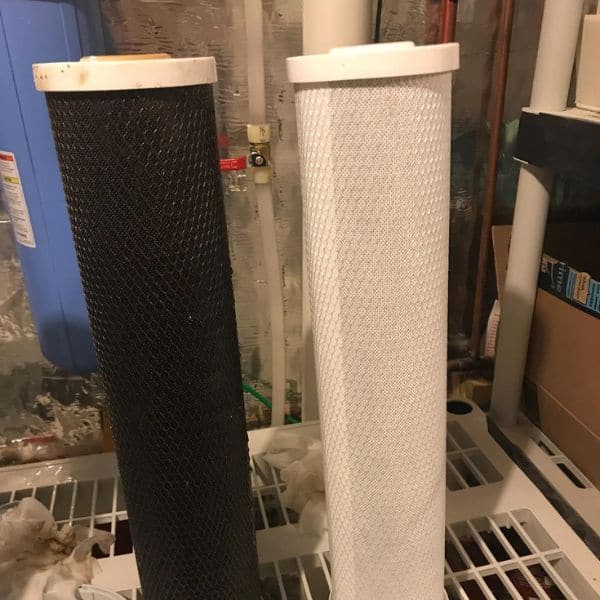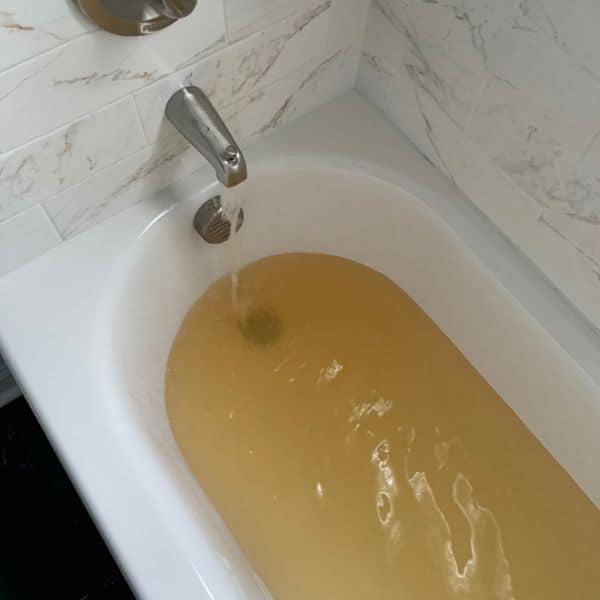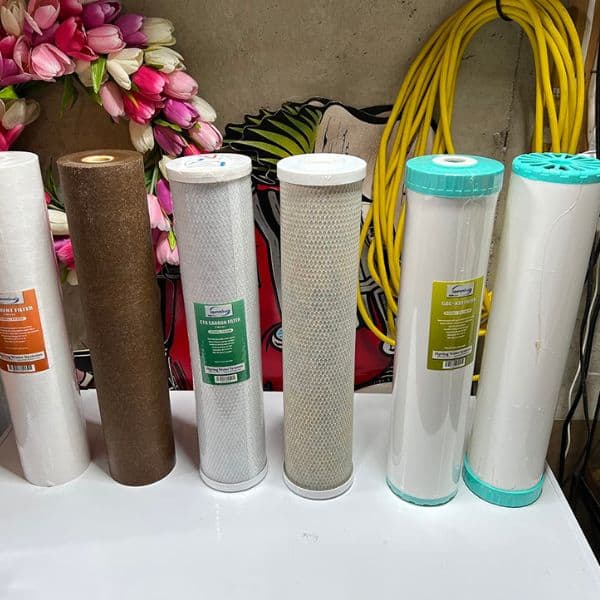Consequences of Using an Old Well Water Filter
Using an old well water filter can lead to a host of problems, such as:
Bacteria growth on the filter
If you do not use a replacement filter and rely on the old one, it can have serious consequences, including the growth of bacteria on the filter. As filters age, they become less effective at removing contaminants from well water, allowing bacteria to flourish. This can result in several negative side effects for those who drink the contaminated water.
Bacteria growth on a well water filter can lead to gastrointestinal issues such as nausea, vomiting, and diarrhea. Additionally, it can cause skin irritation or infections for those who come into contact with the contaminated water supply during daily activities like bathing or washing dishes. In some cases, this type of bacterial contamination can even lead to more serious health concerns, such as pneumonia or meningitis.

Contaminants in filtered water
Another common risk of using an old well water filter or refrigerator water filter is the presence of contaminants in filtered water. Contaminants like bacteria, viruses, fungi, and chemicals are often found in untreated or poorly treated well water. While a good filtration system can help reduce these contaminants to safe levels, an old or damaged filter may not effectively remove them. This means that harmful particles could still end up in your drinking glass even after filtering your well water.
Poor filtration performance
Poor performance of the water filtration systems is the most common issue of using an old well water filter. As filters age, they become less effective in removing contaminants and impurities from the water, which puts your health at risk.
An old filter may not be able to remove all types of contaminants, such as bacteria, viruses, and heavy metals. This can lead to potential health problems like gastrointestinal issues, skin irritation, or even long-term exposure to diseases if left untreated for a long time. Furthermore, when a filter becomes clogged over time due to excessive use or lack of maintenance, it may cause low pressure in your plumbing system, reducing water flow.
If you suspect your well water filter is outdated and not working properly anymore, replacing it with a new one as soon as possible is important.
How Often Should You Change a Well Water Filter?
If you rely on well water for your daily needs, you know the importance of maintaining a functional, clean well-water filter. Well water filters trap impurities and contaminants in the water before they reach your faucet. This ensures that the water is safe for consumption and household use. However, just like any other equipment in your home, well water filters require regular maintenance to keep them functioning optimally. Here is a list of the best whole house well water filters that you may go through.
So, how often should you change your water filter? It depends on several factors, such as the quality of the groundwater source, usage volume, and type of filtration system installed. As a general rule of thumb, replacing the sediment filter every 3-6 months is recommended, while the carbon filter or reverse osmosis system filter should be changed at least once a year.

Signs That You Need to Replace Your Well Water Filter
Installing a sediment filter (or some other filter) for well water is essential to get clean water but changing it is more necessary. Over time, the well water filter can become clogged or worn out, resulting in poor water quality.
Some water filters have an indicator light that indicates when it is time to change the filter. However, if you do not have an indicator light in your filter, you might experience the following signs when it is time to change your filter:
Reduced water flow
Reduced water flow is a common sign that your well water filter needs to be replaced. The filter in your well system removes impurities, such as sand, dirt, and sediment, from the water before it enters your home. Over time, the filter will become clogged with these impurities, reducing water flow and potentially contaminating drinking water.
One of the easiest ways to determine if you need to replace your well water filter is by monitoring the water pressure in your home. If you notice a decrease in pressure or a slower-than-normal flow rate, your filter likely needs replacing.
Poor water quality
Poor water quality is a major concern for homeowners who rely on well water. Water filters are essential to keeping the water clean and safe for consumption. However, these filters can become clogged with contaminants and bacteria over time, leading to poor water quality. If you’ve noticed that your well water has become discolored or has an unpleasant odor/taste, it may be a sign that your filter needs to be replaced.
One of the primary reasons for poor well water quality is the accumulation of sediment and minerals in the filter media. This buildup can restrict water flow through the filter, reducing its effectiveness in removing pollutants. Additionally, bacteria and other microorganisms can grow inside the filter if it needs to be properly maintained or replaced regularly. This can lead to health problems if consumed.
Replacing your well water filter is crucial in maintaining good-quality drinking water in your home.

Does a Dirty Water Filter Make You Sick?
A dirty water filter can lead to several health risks. When bacteria and contaminants are trapped in a clogged filter, they grow rapidly and can cause severe illnesses when consumed. The dangerous microorganisms in unfiltered tap water include E.coli, salmonella, cholera, and giardia. These harmful agents can cause fever-like symptoms such as nausea, vomiting, diarrhea, or renal failure.
To avoid these health risks associated with a dirty water filter, it is important to change it with a new filter regularly according to the manufacturer’s instructions.
Conclusion
Changing your well water filter every 3-6 months and keeping up-to-date with maintenance is essential. Not changing a well water filter can have serious consequences, and can affect the health of those consuming the water. To ensure that your family is safe from any potential contaminants in your well water, remember to change your filter by the manufacturer’s instructions. Furthermore, test the water quality, as certain pollutants may still exist even after a filter has been changed.

